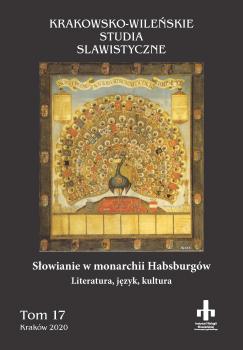Personálna a sociálna deixa v prekladových textoch habsburskej cisárskej a kráľovskej kancelárie .......... 225
Streszczenie
DEIKSA OSOBOWA I SPOŁECZNA W PRZEKŁADACH TEKSTÓW HABSBURSKIEJ CESARSKIEJ I KRÓLEWSKIEJ KANCELARII
W swoim artykule autor zajmuje się manifestem cesarza Franciszka Józefa I, którym 28 lipca 1914 r. władca ogłosił obywatelom monarchii wypowiedzenie wojny Serbii. W ramach analizy autor skupia się na badaniu, funkcji i zastosowaniu deiksy osobowej i społecznej w tekście manifestu, porównując słowacki przekład oświadczenia z dwoma przekładami słowiańskimi (czeskim i polskim) oraz z niemiecką wersją tekstu.Zasadniczą cechą analizowanego tekstu zdaje się zmiana formy pluralis maiestaticus MY (cesarz) na zindiwidualizowane JA (Franciszek Józef I). Autor zakłada, że celowa zmiana MY → JA prawdopodobnie miała na celu spersonalizowanie osoby Franciszka Józefa I wobec depersonalizowanej funkcji cesarza, stworzenie bardziej osobistego kontaktu między autorem i adresatem, zaakcentowanie zaangażowania emocjonalnego oraz podkreślenie dramatyczności komunikatu, ale równocześnie w wyniku użycia zaimków posesywnych mój/moja/moje JA-autor występuje w oczekiwanej funkcji władcy jako właściciel, ale też jako przedstawiciel całej monarchii.Autor zakłada, że zmiana MY → JA miała u odbiorcy komunikatu (manifestu wypowiedzania wojny) wzbudzić poczucie wzajemnej współodpowiedzialności i wprowadzić atmosferę częściowego zacierania granic na płaszczyźnie dystansu społecznego.





